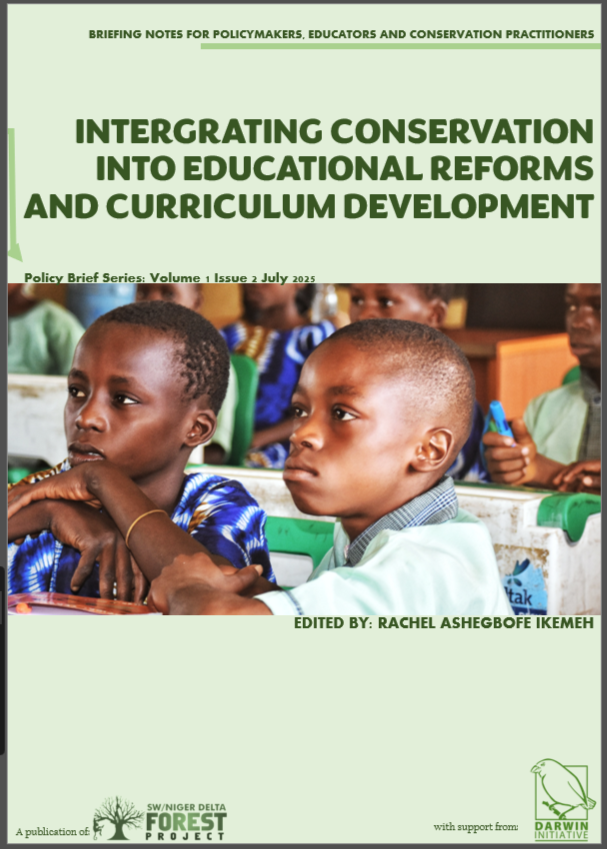
Education represents one of the most effective means for shaping attitudes toward nature and biodiversity. Recognizing this, UNESCO has advocated for Education in Sustainable Development to become a fundamental part of all education systems by 2025. Research has shown that incorporating environmental topics into school curricula provides substantial benefits for learners.2,3 But why is this crucial to preserving biodiversity in the Niger Delta and across Nigeria?
Biodiversity loss and habitat degradation in Nigeria are severely affecting human well-being. Desertification in the north is exacerbating poverty,4 while oil pollution and habitat destruction in the delta have led to declining fisheries, food insecurity, and increased logging in the swamps and mangroves.5 These issues have caused sharp declines and even local extinctions of species like pygmy hippos, elephants, and even the endemic Niger Delta red colobus monkey narrowly escaped extinction. Biodiversity decline can be linked to economic hardship and resultant youth restiveness. In southwestern Nigeria, rapid development has reduced tropical rainforests to small patches6 within only 2 – 3 conserved areas and some sacred groves with average size of about 1ha – all surrounded by agriculture and towns, with 80–90% of forests converted for other uses, making biodiversity loss a pressing concern.
Addressing biodiversity loss requires not only ecological strategies but also significant social interventions, with education serving as a vehicle for change. In an age marked by diverse learning platforms—from digital media to AI-powered knowledge at our fingertips—education is more accessible than ever. However, structured education through formal school systems remains a cornerstone for societal transformation. To drive long-term behavioural change and cultivate conservation stewardship, biodiversity-related information must be embedded within these systems. Schools offer consistent, curriculum-based engagement that not only informs but also shapes values, attitudes, and lifelong habits. Thus, integrating conservation subjects systematically into formal school curricula is essential, particularly in Nigeria, where young people constitute much of the population—70% are under 30 years old, and 42% are under 15, equating to approximately 160 million young people.7,8 This demographic landscape provides a substantial opportunity to shape the trajectory of Nigerian society by embedding conservation education within current policy reforms and curriculum development initiatives. Currently, environmental education (EE) in Nigerian schools is typically provided on an informal or occasional basis, when included at all. Some private primary and secondary schools cover environmental topics within related subjects such as basic science or social studies, but EE is not a formal part of the national curriculum. Consequently, much of the conservation education available to young Nigerians originates outside the school system, mainly through non-governmental organizations (NGOs), civil society groups, and corporate social responsibility initiatives. This policy brief argues that the time is ripe to integrate conservation principles into Nigeria’s educational reforms and curricula. By doing so, Nigeria can empower its youth to become stewards of the environment, address root causes of environmental degradation, and align with global sustainable development goals.
Click on the link or Scan the OR code to read
